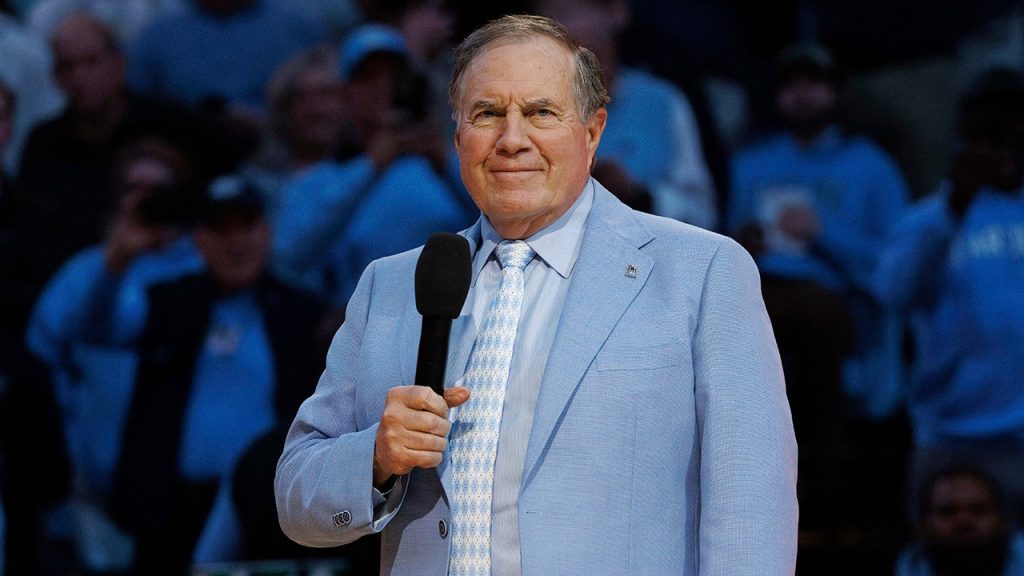Bill Belichick’s unexpected transition from the pinnacle of professional football to the helm of the University of North Carolina Tar Heels football program has sent ripples of astonishment throughout the sports world. The 72-year-old coaching icon, renowned for his unparalleled success in the NFL, notably with the New England Patriots, embarks on this new chapter with a legacy firmly cemented in professional football history. His decision to venture into the collegiate arena at this stage of his career has sparked widespread bewilderment and a flurry of speculation about his motivations.
Former Patriots linebacker Tedy Bruschi, a key figure in Belichick’s Super Bowl-winning teams, expressed his incredulity, questioning the logic behind the move. Bruschi’s sentiments reflect the prevailing sentiment among many who struggle to reconcile Belichick’s proven prowess in the high-stakes world of the NFL with the perceived lesser stage of college football. He highlighted the stark contrast between Belichick’s Super Bowl pedigree and the less prestigious bowl games that characterize the college football postseason. Bruschi also emphasized Belichick’s transformative impact on any team he leads, asserting that his presence alone would elevate a struggling franchise into a contender, underscoring the perceived loss to the NFL with his departure.
However, amidst the chorus of disbelief, some, like former Patriots wide receiver Julian Edelman, offer a different perspective. Edelman, while acknowledging the initial surprise, posits a more nuanced understanding of Belichick’s decision. He identifies three key factors that may have influenced the move: Belichick’s exceptional ability to project player potential, his deep-seated nostalgia for his father’s coaching career at North Carolina, and the allure of associating the “Hoodie” with the iconic Tar Heel blue, reminiscent of Michael Jordan’s era. These elements, Edelman suggests, provide a more coherent narrative for Belichick’s seemingly unconventional choice.
Belichick’s transition to college football marks a significant departure from his established trajectory. The multi-Super Bowl-winning coach, known for his meticulous preparation, strategic brilliance, and unwavering focus on winning, will now navigate a different landscape. The college game presents unique challenges, including recruiting restrictions, player development considerations, and a different competitive environment. Belichick’s ability to adapt his proven methods to this new context will be a key determinant of his success at North Carolina.
The Tar Heels, currently holding a 6-6 record, are set to face UConn in the Fenway Bowl. While interim coach Freddie Kitchens will lead the team for the bowl game, the anticipation for Belichick’s official takeover is palpable. He inherits a program with a consistent bowl game presence but a lack of recent breakthrough seasons, having achieved only one 10-win season since 1998. Belichick’s arrival signals a new era for North Carolina football, one fraught with both expectation and uncertainty.
Belichick’s decision also brings closure to speculation about his potential return to the NFL, particularly with the New York Jets, despite the past acrimonious history between them. His commitment to North Carolina effectively closes that chapter, leaving the Jets and other NFL teams to pursue alternative coaching options. The long-term implications of Belichick’s move remain to be seen, both for his own legacy and for the landscape of college football. His arrival undoubtedly elevates the profile of North Carolina football, but the true measure of his success will lie in his ability to translate his NFL dominance into collegiate triumphs.


